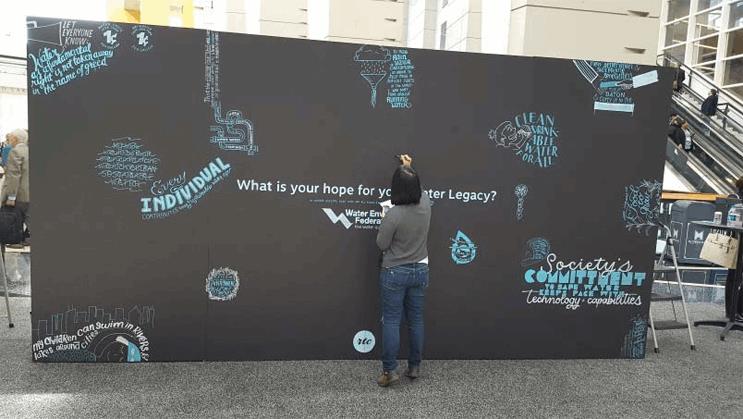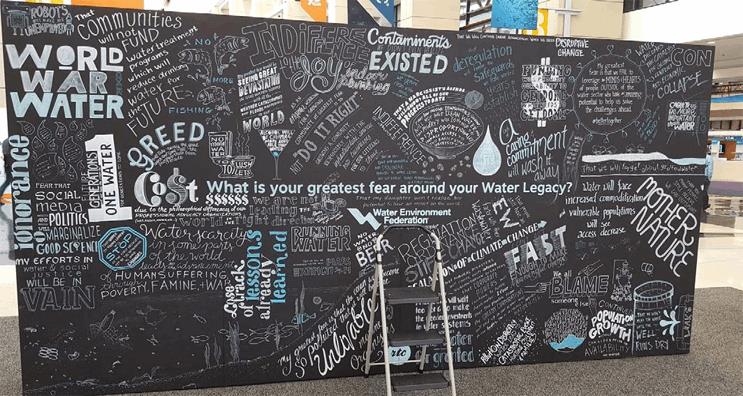Hopes And Fears For Our Water Legacy

By Kevin Westerling,
@KevinOnWater
The world’s largest annual water quality event provides the setting for a public display of water affection — and anxiety.
In early October, I covered the annual Water Environment Federation Technical Exhibition and Conference (WEFTEC) for Water Online, as I have for the past nine years. That makes me a mere rookie relative to most of the attendees, and yet I’m an industry veteran to many others. This age disparity is a major talking point in the water industry, and it took center stage at WEFTEC17.
The concern is that the workforce, particularly water/wastewater treatment plant operators, skews older and is set to retire at a higher rate over the next decade than the national average compared to other industries. Some have termed it “brain drain,” referring to the institutional knowledge that goes out the door as retirees hang up their hard hats. So how does that knowledge get transferred to the next generation of operators? How do we attract young people to the cause and vocation of water stewardship at a time when water issues are more critical than ever? And are they ready for the challenge?
The hopes and fears of water professionals of all ages were on display — literally — at WEFTEC17, in the midst of Chicago’s McCormick Place concourse. Attendees were asked “What is your hope for your Water Legacy?” as well as “What is your greatest fear around your Water Legacy?” These simple questions summoned responses that reflect all that is good and worrisome about our industry and must have been an especially emotional exercise for those just embarking on a career or leaving one behind. The ballot-box responses were artistically rendered onto a giant chalkboard, creating an enlightening collage that developed as the show progressed.


Hopes:
If you’re part of the retiring set and can’t quite see the above (just kidding), here are some highlights.
“I hope to see direct water reuse technology accessible for all humanity.”
"That society’s commitment to safe water keeps pace with technology and capabilities.”
“Change the status quo to make environmental consciousness the norm.”
“Protect and enhance our waterfronts as the center of our communities.”
“That more people value water and are proud of being a water professional.”
“That the new generation and succeeding generations pick up the baton and carry it to the finish line.”
...And Fears:
“My greatest fear is that we fail to leverage the minds and hearts of people outside of the water sector who have the amazing potential to help us solve the challenges ahead.”
“Fear that social media and politics will marginalize good science.”
“Water will face increased commoditization and vulnerable populations will see access decrease.”
“As an engineer working for a growing community, my greatest fear is to not do it right.”
“That we will continue linear advancement when we need disruptive change.”
“That we won’t miss the water until the well runs dry.”
There were some very practical responses on both sides of the equation — or chalkboard, as it were — with hopes including solutions for “flushable” wipes and proper funding, and fears such as job-stealing robots and regulatory uncertainty. But more than anything, I’m struck by the sense of service and compassion conveyed. This is an industry that cares about taking care of others, and if that’s the Water Legacy passed down from one generation to the next, the future is in excellent hands.
